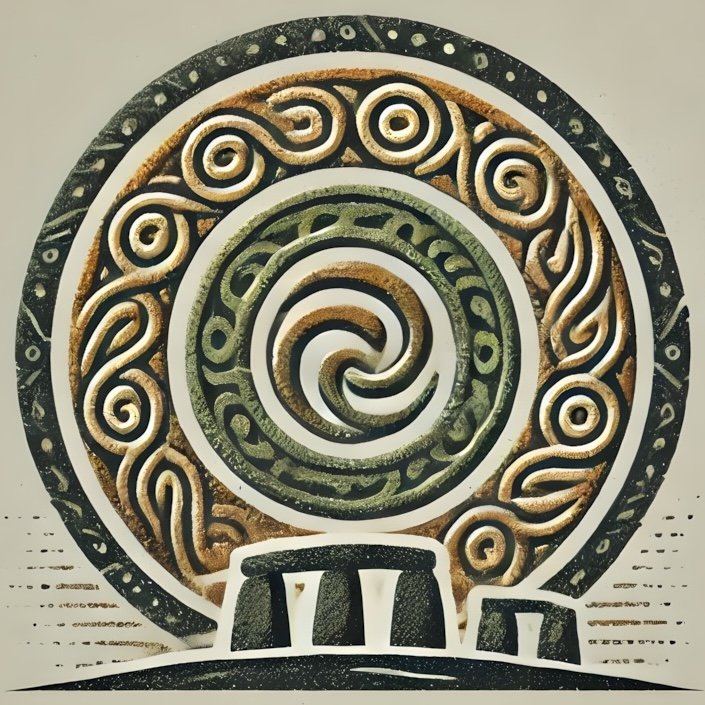Druidism in Contemporary Culture and Spirituality
Druidism, an ancient spiritual tradition rooted in the Celtic cultures of Ireland and beyond, has experienced a remarkable resurgence in contemporary times. This revival is not merely a nostalgic nod to the past but a dynamic and evolving practice that speaks to modern spiritual seekers. As we explore the legacy of Druidism, it is essential to understand its transformation and relevance in today’s world, where it intersects with environmentalism, personal spirituality, and cultural identity.
The Revival of Druidism
The revival of Druidism in the 20th and 21st centuries can be attributed to a growing interest in ancient wisdom and nature-based spirituality. This resurgence is part of a broader movement that seeks to reconnect with the Earth and its cycles, a response to the increasingly urbanized and technologically driven world. Modern Druidic practices draw inspiration from ancient sources, including texts, archaeology, and folklore, while also adapting to contemporary needs and sensibilities.
Organizations such as the Order of Bards, Ovates, and Druids (OBOD) and the British Druid Order have played a significant role in this revival. These groups offer structured teachings and community for those interested in exploring Druidic spirituality. They emphasize a deep connection to nature, the celebration of seasonal festivals, and the pursuit of personal and spiritual growth.
Druidism and Environmentalism
One of the most striking aspects of contemporary Druidism is its alignment with environmentalism. Druids have long been associated with a profound respect for nature, and this ethos resonates strongly in today’s environmental movement. Modern Druids often engage in ecological activism, advocating for the protection of natural landscapes, biodiversity, and sustainable living.
The Druidic reverence for the Earth is expressed through rituals and ceremonies that honor the changing seasons and the natural world. These practices foster a sense of interconnectedness and responsibility towards the environment, encouraging adherents to live in harmony with nature. In this way, Druidism offers a spiritual framework that complements and enriches environmental activism.
Personal Spirituality and Inner Transformation
In contemporary culture, Druidism provides a path for personal spirituality and inner transformation. It offers a holistic approach that integrates the physical, emotional, and spiritual dimensions of life. Through meditation, ritual, and study, Druids seek to cultivate wisdom, creativity, and a sense of peace.
The Druidic path is highly individualistic, allowing practitioners to explore their own spiritual journeys while drawing on shared traditions and teachings. This flexibility makes Druidism accessible to a diverse range of people, regardless of their cultural or religious backgrounds. The emphasis on personal experience and intuition over dogma appeals to those disenchanted with more rigid religious structures.
Druidic Festivals and Community
Central to Druidic practice are the seasonal festivals that mark the turning of the year. These celebrations, such as Samhain, Imbolc, Beltane, and Lughnasadh, are rooted in ancient Celtic traditions and serve as opportunities for community gathering and spiritual reflection. Each festival holds unique significance, reflecting the cycles of nature and human life.
In contemporary settings, these festivals are celebrated with rituals that may include music, storytelling, and communal feasting. They provide a sense of belonging and continuity, connecting participants to the rhythms of the natural world and the wisdom of their ancestors. The communal aspect of these gatherings fosters a sense of kinship and shared purpose among participants.
Druidism and Cultural Identity
For many, Druidism is a means of exploring and reclaiming cultural identity. In regions with Celtic heritage, such as Ireland, Scotland, and Wales, Druidism offers a connection to ancestral traditions and a sense of pride in cultural roots. This exploration often involves studying Celtic mythology, language, and history, enriching one’s understanding of their heritage.
In a global context, Druidism transcends cultural boundaries, attracting individuals seeking a spiritual path that honors diversity and inclusivity. The universal themes of nature reverence and personal transformation resonate with people worldwide, making Druidism a truly global spiritual movement.
The Role of Myth and Storytelling
Myth and storytelling are integral to Druidic practice, serving as vehicles for conveying spiritual truths and cultural values. The rich tapestry of Celtic mythology, with its tales of gods, heroes, and mystical beings, provides a source of inspiration and insight for modern Druids. These stories are not merely historical artifacts but living narratives that continue to inform and shape contemporary Druidic practice.
In today’s world, storytelling remains a powerful tool for personal and collective transformation. Through the retelling of ancient myths and the creation of new stories, Druids explore themes of identity, morality, and the human relationship with the natural world. This dynamic interplay between past and present enriches the spiritual journey and fosters a deeper understanding of the self and the universe.
Druidism in the Digital Age
The digital age has brought new opportunities and challenges for the practice of Druidism. Online platforms and social media have facilitated the sharing of knowledge and the formation of virtual communities, allowing Druids from around the world to connect and collaborate. This digital connectivity has expanded the reach of Druidic teachings and practices, making them accessible to a broader audience.
However, the digital age also presents challenges, such as the need to balance virtual interactions with real-world experiences and the potential for cultural appropriation. As Druidism continues to evolve, practitioners are exploring ways to integrate technology while maintaining the integrity and authenticity of their spiritual practices.
Conclusion
The legacy of Druidism in contemporary culture and spirituality is a testament to its enduring relevance and adaptability. As a living tradition, Druidism offers valuable insights and practices for navigating the complexities of modern life. Whether through environmental activism, personal transformation, or cultural exploration, Druidism continues to inspire and empower individuals on their spiritual journeys. In a world seeking connection and meaning, the ancient wisdom of the Druids remains a guiding light, illuminating the path toward a harmonious and sustainable future.

